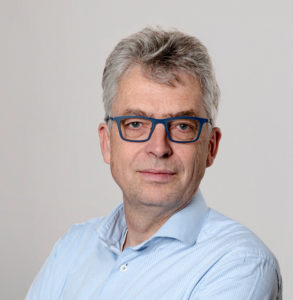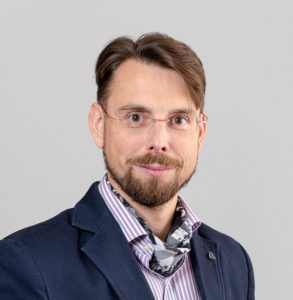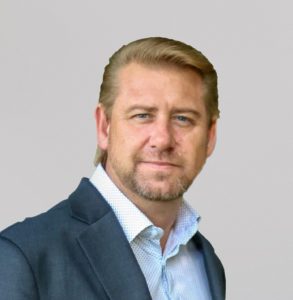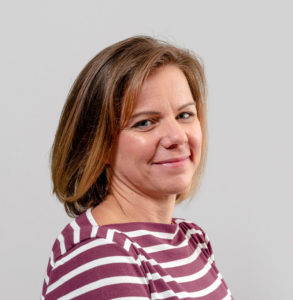‘Risk professional’ register important for development of profession
02 october 2018

“Good for the professional group, insurers and customers” a new approach has now been adopted in the Netherlands for the registration of ‘risk professionals’ and ‘risk engineers’. This new development ensures that higher quality demands are made on the target group and offers clarity regarding education and experience requirements. Riskonet was closely involved in the establishment of the register. The Dutch Association of Insurers is pleased with this boost to quality and quality control, which may possibly offer a format for other countries.
“This quality boost is good for the professional group, good for insurers and definitely good for insurance customers,” claims Marko van Leeuwen from the Dutch Association of Insurers. This group of insurers have partnered up with specialists, including Ron de Bruijn from Riskonet, to get the innovations started.
Among other things, the new register clarifies what you can expect from a risk professional, the expertise and services offered by each specialist, how the risk expert works and the quality of this work. A professional register was already available, but the new register has far more ambitious goals.
Why is this innovation so important?
De Bruijn explains, “There is no shortage of good risk experts, but of consistent quality and a uniform approach. To enable this professional group to develop and improve further, we need to make demands of ourselves and each other. Achieving this is time-consuming, but the registration and development of the profession will result in a higher level of professionalism. It also facilitates an increase in young newcomers to the profession. Insurance companies and businesses will benefit from this in the long term.”
Why is the insurance association interested in devoting so much time and effort to upgrading the register?
Van Leeuwen explains, “We feel a sense of responsibility, even though the professional group is personally responsible for the development of the profession. A large percentage of these professionals work for insurers or insurance brokers or at consultancy firms that advise these organisation. Their work is related to the insurance industry in one way or another. This industry has needed a better method for safeguarding the quality of risk experts for some time now in order to gain more clarity regarding the contents and quality of the advice on possible risks provided by risk experts to both insurers and customers.”
Why was this not clear in the old situation?
“The register functioned well, but with insufficient mutual interaction. Expertise sharing, discussions and reflection are essential in order to continuously foster and strengthen the professional group. Moreover there was only a limited number of professionals who were registered. We now involve the entire group of risk experts more closely in the insurance sector within the framework of the NVVK (Dutch Association of Safety Specialists). We were also looking for a way to safeguard quality in a more objective fashion, one that is more closely aligned with the wishes and needs of insurers and insurance brokers. After all, these are the professionals – not to mention their customers – who benefit most from quality, continuity and reliability.”
“To enable this professional group to develop and improve further, we need to make demands of ourselves and each other.”
What are the new requirements?
“We’ve definitely raised the bar in terms of professionalism. You need not only risk-related knowledge and expertise, but also other skills. You need to be able to engage in dialogue with business professionals, support your advice with facts, be persuasive, understand reports and be able to hold presentations. These are entirely different skills than were needed a decade ago. To become registered, you must undergo an assessment to identify your strengths and weaknesses. We also examine your professional knowledge with a focus on the necessary papers and practical experience in order to ensure that you have specific basic knowledge. This is necessary because there is no complete degree programme available for risk experts, although training workshops and courses offer a certain level of expertise. And, of course, a certain minimum amount of work experience in the field of risk, safety and prevention is required to be added to the register. You need to have worked at least 800 hours – more than half your time – as a risk expert.”
So the requirements are more stringent?
Ron de Bruijn responds, “Absolutely. We want all fellow risk professionals to comply with the PE model. This means that your registration is clear proof that you plan to undergo certain types of training and education in order to develop and maintain your knowledge. This is a mandatory requirement. Those who fail to do so run the risk of being deleted from the register. This is the only way we can raise the quality of what we like to call the ‘risk engineering community’ to a higher level in the Netherlands and to maintain it at that level. Registration applies to individuals, but risk engineering departments at insurance companies, brokers and consultancy firms may also qualify for inclusion. The latter aspect is still under development.”
The new system is not yet fully operational and is still undergoing development. Wishes?
Marko van Leeuwen responds, “We’d like to see a better study programme and knowledge assessment. That is no small challenge because what should be considered necessary basic knowledge? What level is attainable in the short or long term? In other words, how high should we raise the bar? One complication is that the group of around 300 persons, with a modest addition of new experts each year, is relatively small, so it’s not easy to find a trainer who considers this group a large enough target group.”
What kind of development does ‘risk expertise’ need to undergo?
“Nowadays, insurers need to not only justify their acceptance policy and practices, but much more is needed than simply insuring those risks. Companies should also invest in measures and prevention. Understanding risk is only one requirement of a risk expert; this specialist also needs to know increasingly more about dealing with these risks.”
Common interests?
“Absolutely, not only for the insurers, but also customers. Good advice is worth its weight in gold! This is what professionals use as the basis for their investment decisions. And good advice helps. But business professionals also need the facts and arguments justifying them before making the necessary funding available. This is only possible if the risk expert practices his profession on a certain level. By demonstrating his professionalism, he increases his level of persuasiveness and credibility.”
Current status?
Ron de Bruijn responds, “There are currently 70 requests for registration and counting. There is definitely interest in this type of register.”





